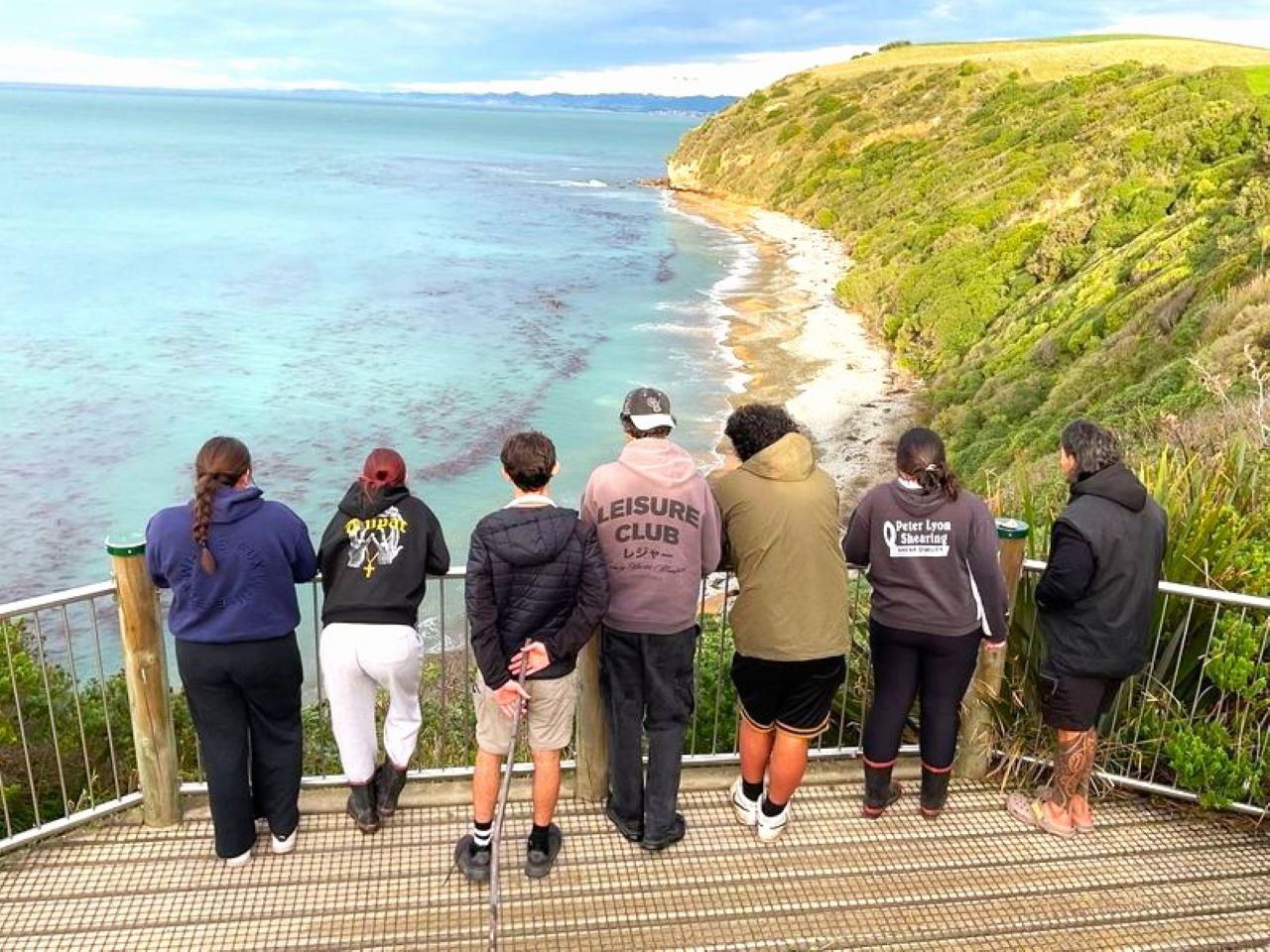Giving a JOT never looked so good
Staff Reporter
15 September 2025, 4:17 AM
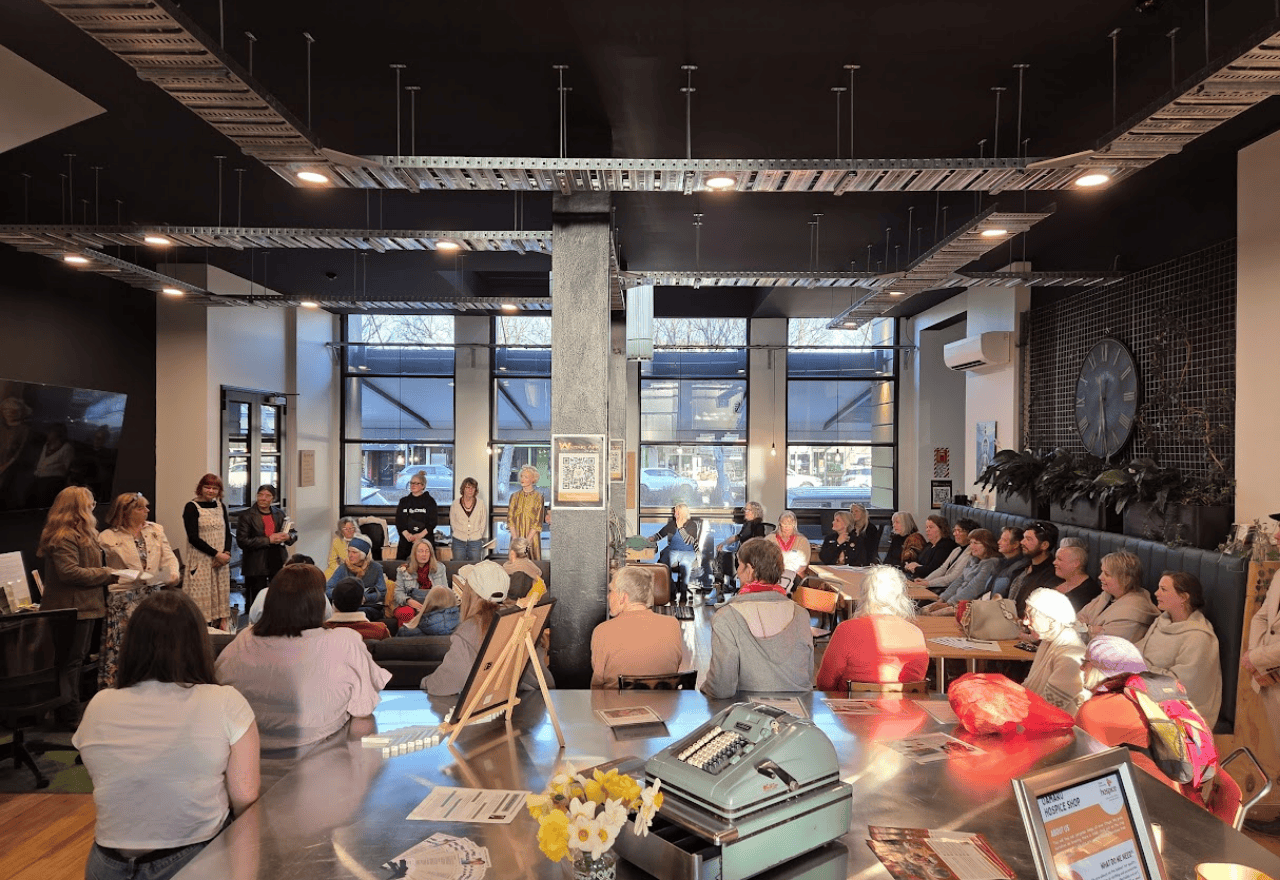 An attentive crowd learn about the 'just one things' we can do to act more sustainably. Photo: Alex Regtien.
An attentive crowd learn about the 'just one things' we can do to act more sustainably. Photo: Alex Regtien.Just One Thing (JOT) Waitaki drew a crowd of menders, makers, second-hand sellers, op shops and op shoppers for its third annual Slow Fashion event at The Business Hive last week.
Slow fashion is the antidote to fast fashion - a movement to highlight sustainability and care in contrast to buying mass-produced garments made quickly and cheaply but at huge cost to workers and the environment.
“There are enough clothes already in the world to clothe another seven generations”, JOT Waitaki co-founder Ann Brown says.
Issues with the fashion industry lie in the poor treatment of the workers, low pay, harsh conditions and exposure to chemicals, as well as environmental concerns such as greenhouse gas emissions and water pollution, she told the group
The ethos of JOT is to do “just one thing” towards sustainable practices.
“It’s easy to get overwhelmed,” co-founder Ruth Davison says. “So all we need to do is focus on just one thing we can do to change, like buying second-hand.”
Buying and selling second-hand makes a difference
Ruth thanked Karyn Shaw and Julia Larkin from the Salvation Army Family Store, and Lisa Bosustow from St John's Oamaru for the work they do.
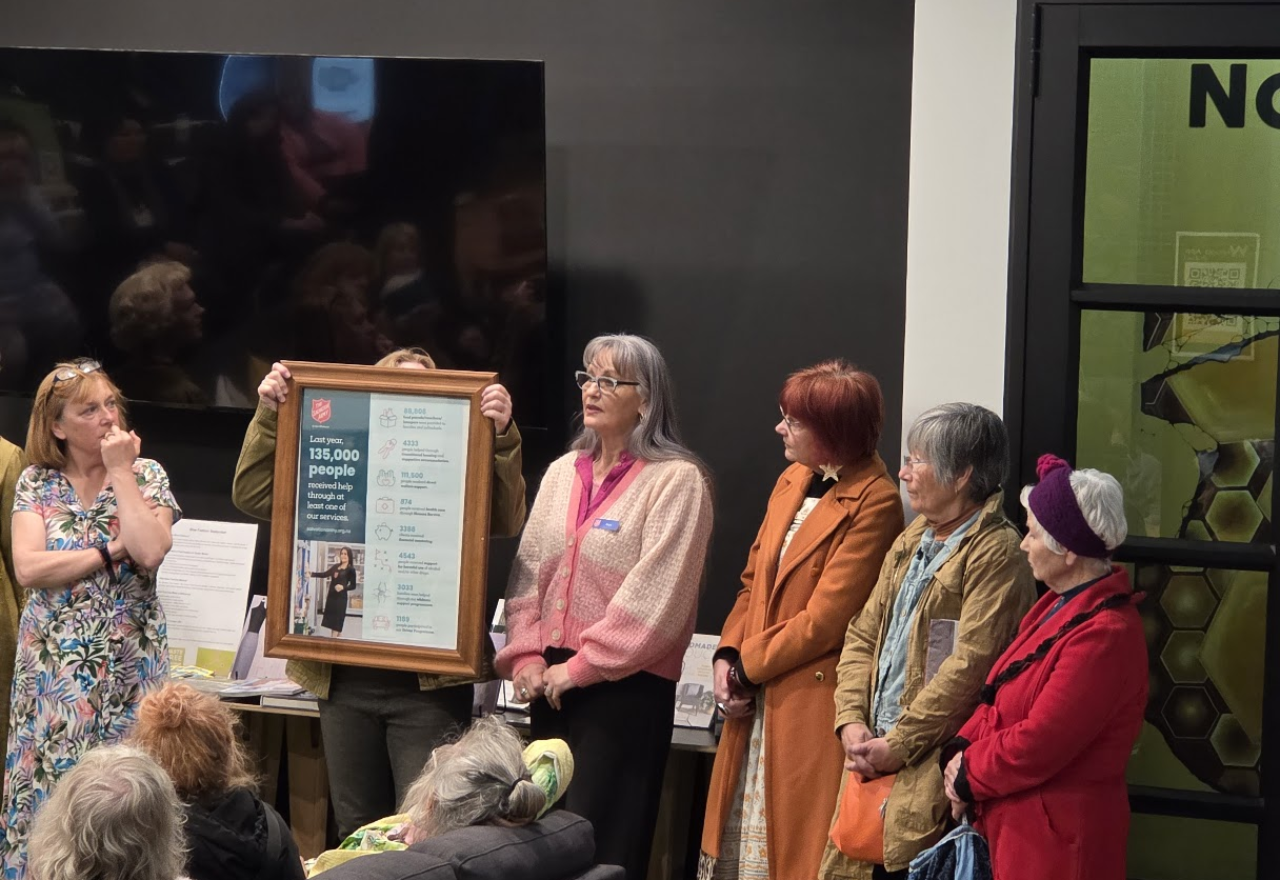
The impact from our charity shops is far-reaching, Ruth Davison says. Photo: Alex Regtien.
“The money raised in our community stays in our community”, she says.
“They do a wonderful service, but when people dump their [unsellable] things, that money gets diverted into landfill fees.
“So, if you wouldn’t buy it yourself, then please don’t donate it.”
Local second-hand and vintage clothing sellers Zara Murphy, Rachel Fastier, Heather Machin and Jeannie Fletcher had stalls, while Annie Beattie sold jewellery on behalf of Justice for All.
Clothes collected and sorted over the previous week were also available in the clothing swap for koha.
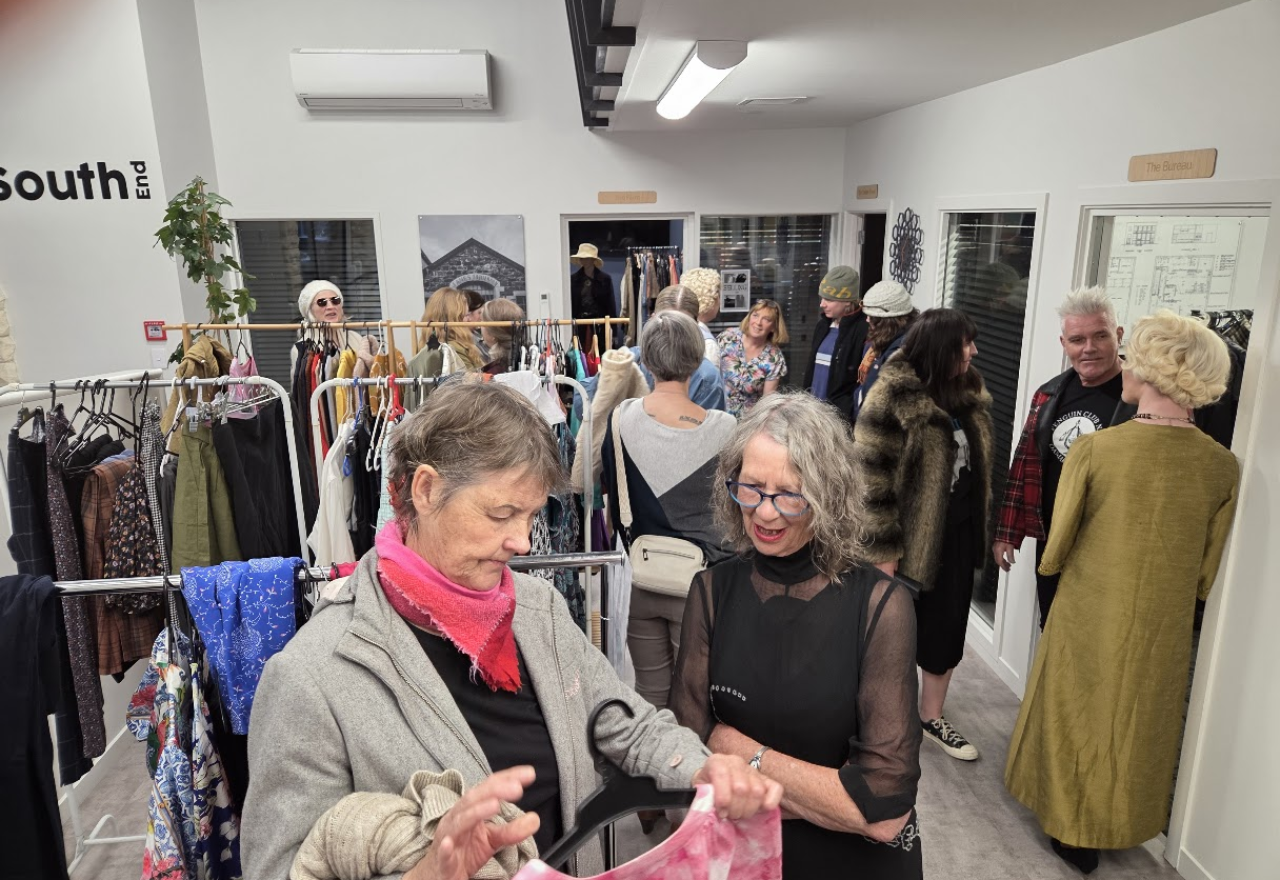
The clothing swap for koha was buzzing at The Business Hive. Photo: Alex Regtien.
Mending, repurposing and reusing tricks and tips
Sandra Winder demonstrated ways to alter and mend clothes, sharing her top tips with the onlookers while Roz Armstrong showed how to make rag rugs from old fabric instead of sending it to the landfill.
“That one’s been going for years,” Roz said, pointing to the rug on the floor while weaving her tuatara masterpiece by way of demonstration.
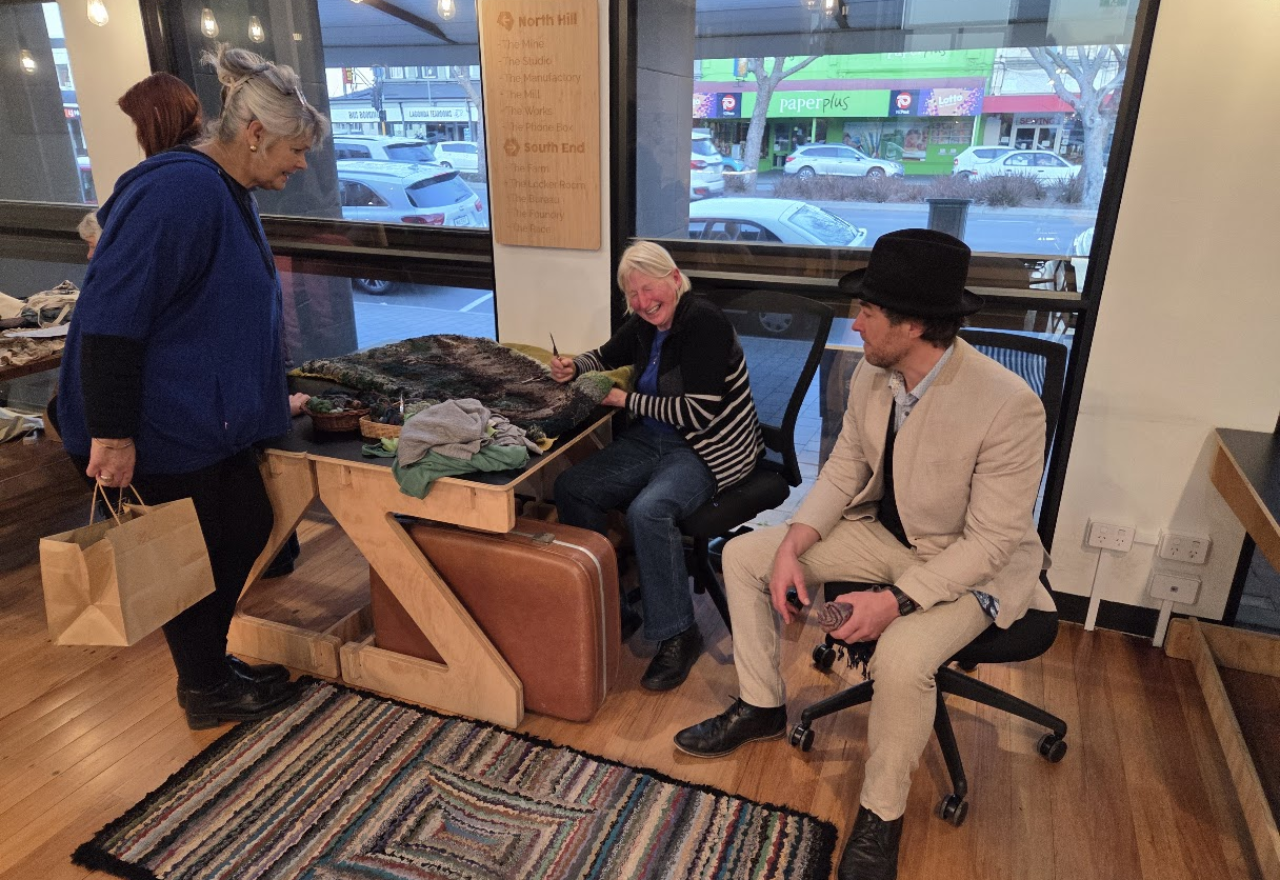
Roz Armstrong enjoying a laugh while showcasing rag rug making. Photo: Alex Regtien.
Meantime, Alana O Connor demonstrated darning, Lisa Potaka Ross showcased a huge array of relevant library books with the technology to lend them to cardholders then and there.
And in a step back to timeless basics, Radka Balcarová demonstrated soap and salve-making including lip balm and a shaving soap for men and women.
Finally, the annual catwalk invited people to show off their slow fashion outfits - second-hand, repurposed or remade.
A jacket made with the salvaged charms of a formerly too small one, a coat bedazzled from a second-hand hoodie, op-shop finds and special items made with love were all on show and applauded by all.
“Everybody has a story,” Ruth says. “That’s another thing I love about slow fashion.”
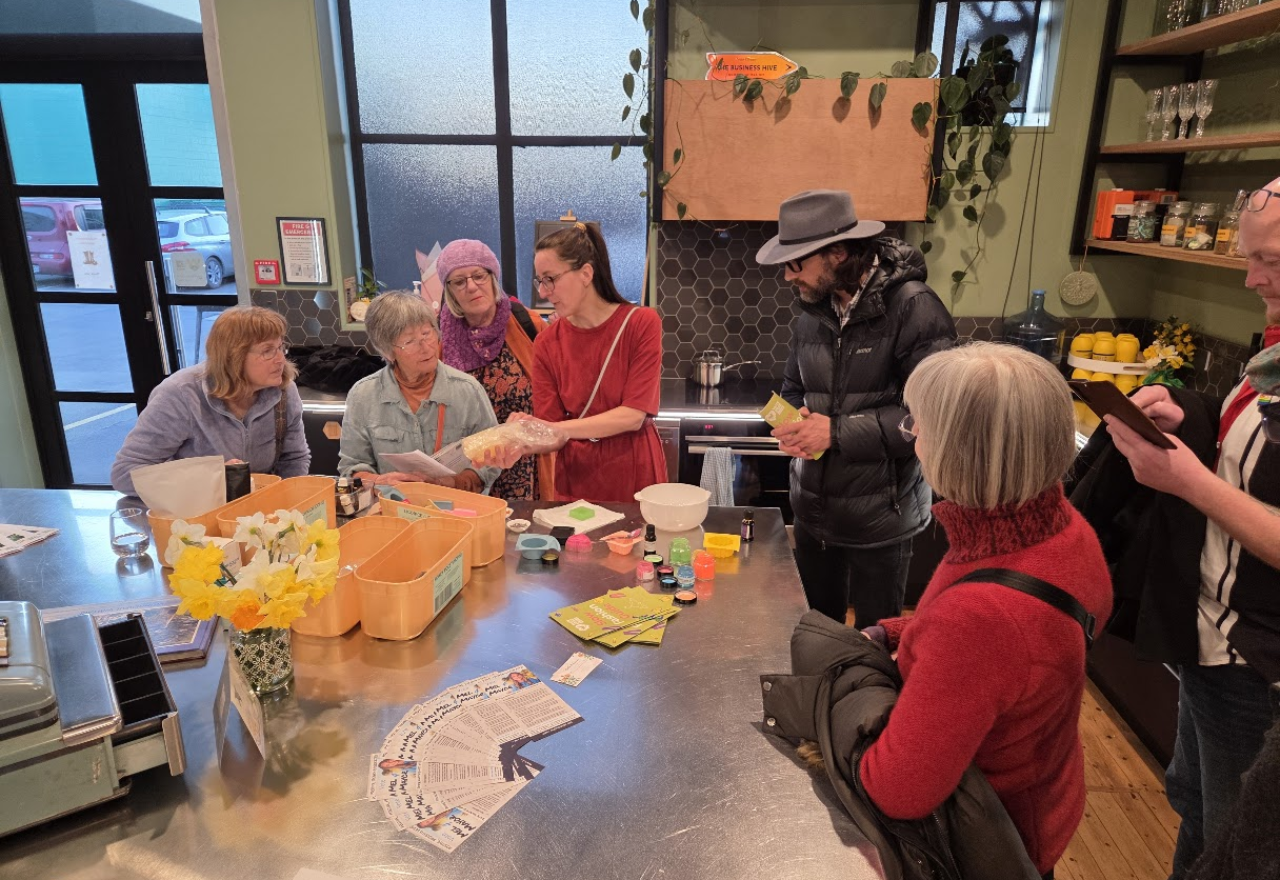
Radka Balcarová demonstrating natural skin products. Photo: Alex Regtien.
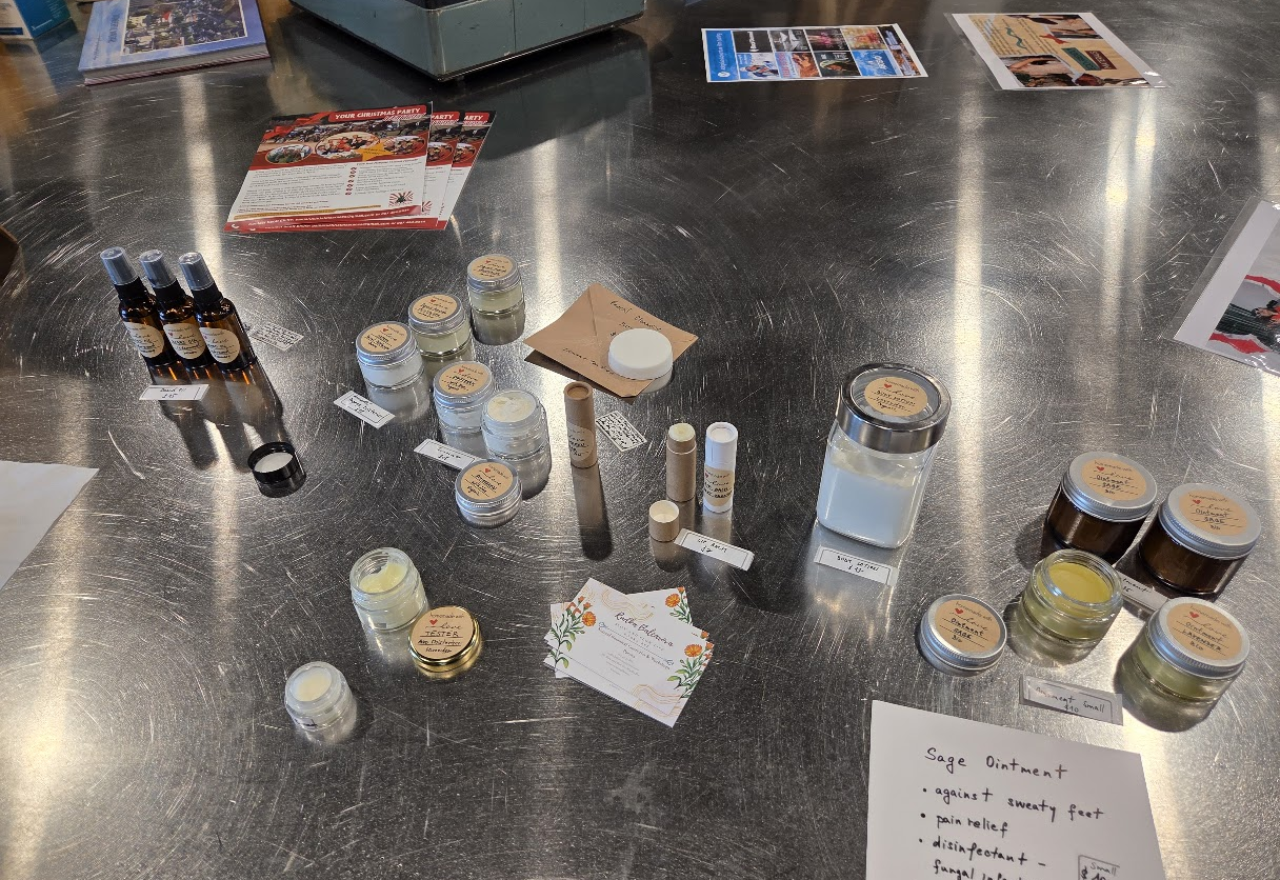
So many different natural products all sustainably made by Radka Balcarová. Photo: Alex Regtien.
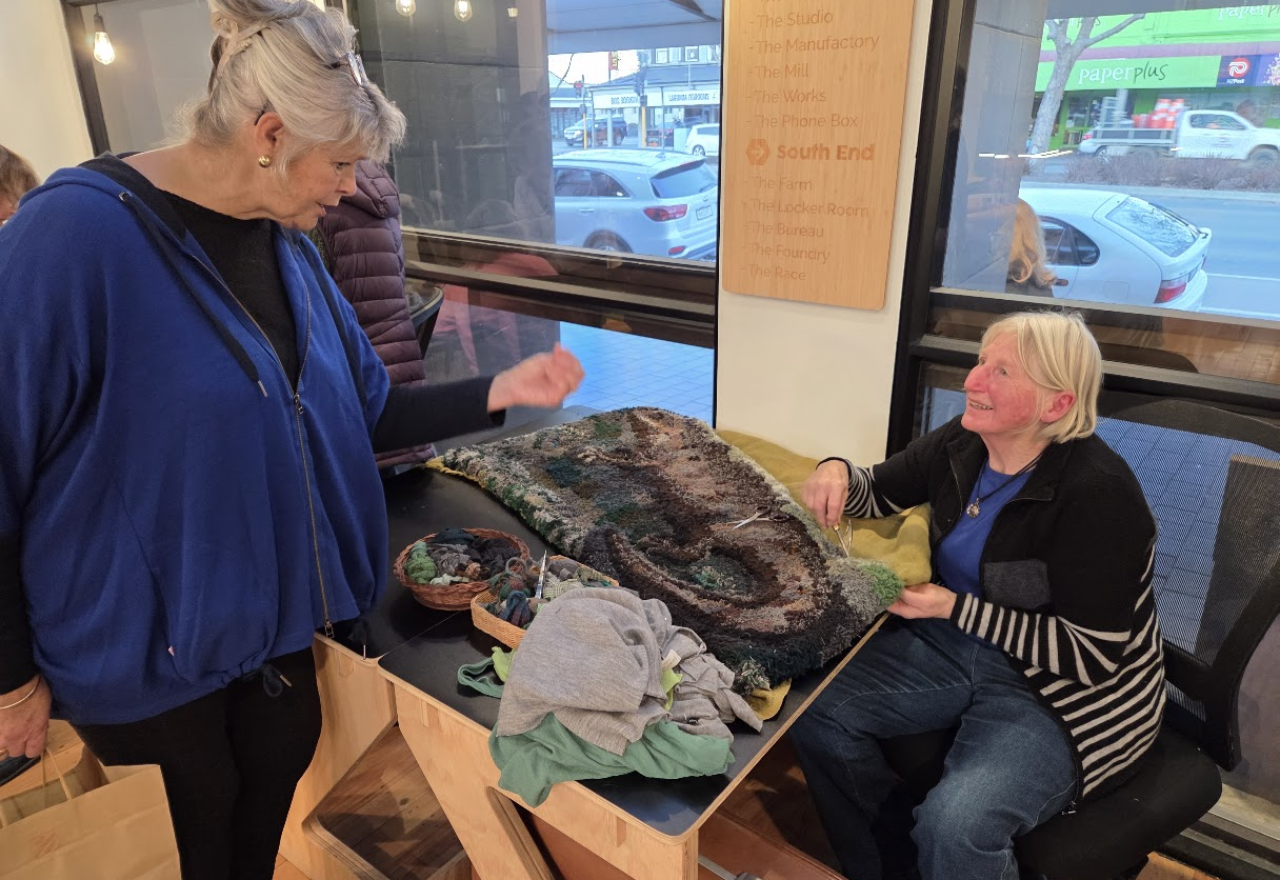
A closer look at Roz Armstrong's Tuatara rag rug. Photo: Alex Regtien.
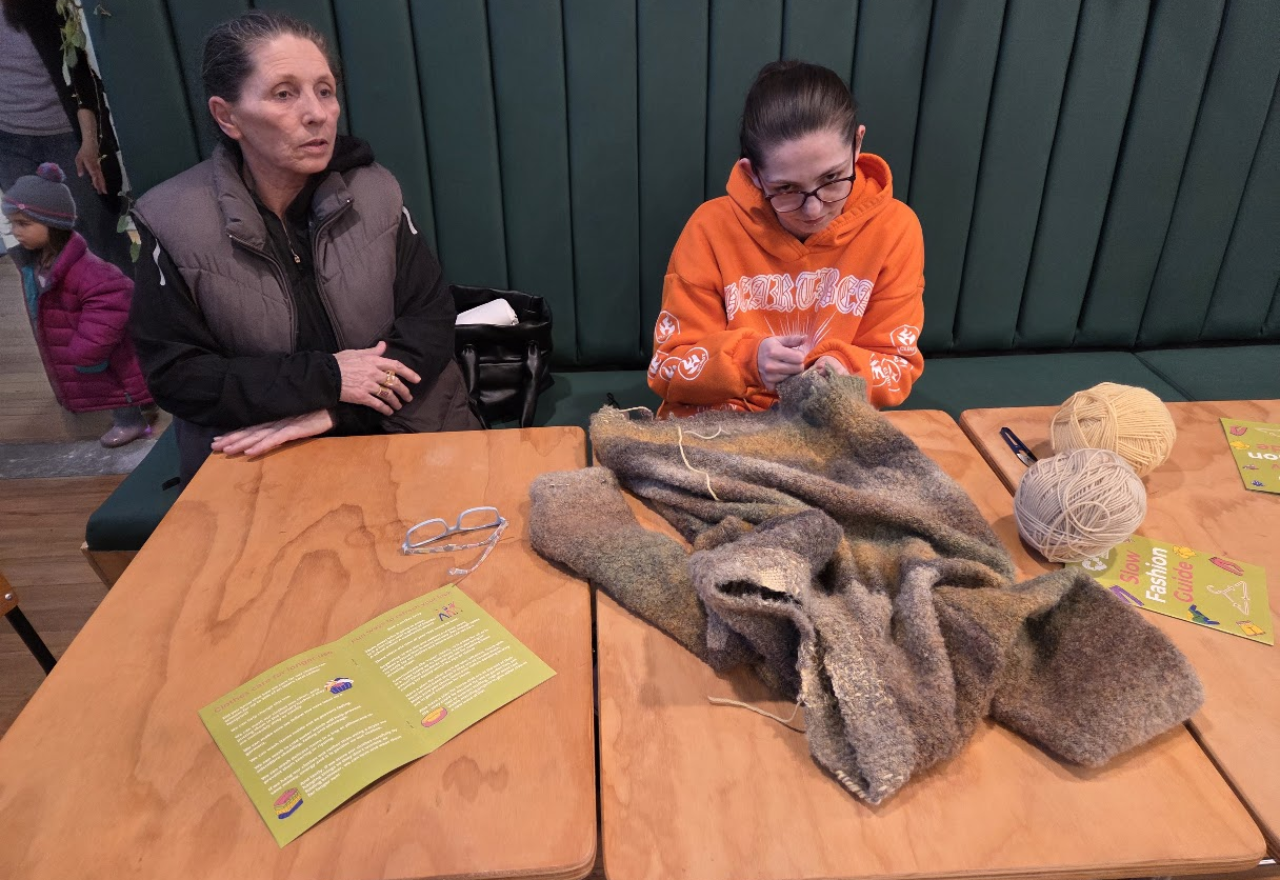
Alana O Connor demonstrating the lost art of darning. Photo: Alex Regtien.
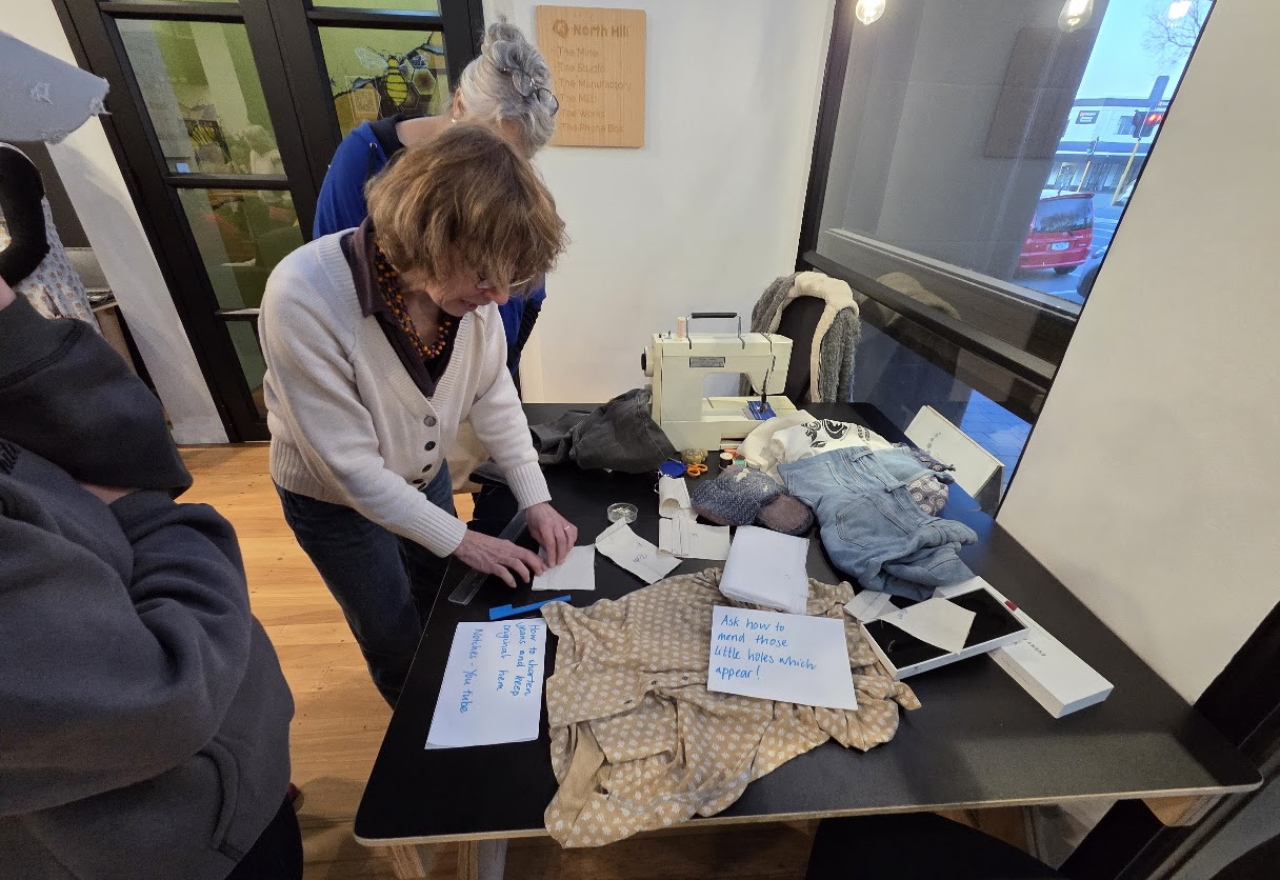
Sandra Winder with her top tips for altering and mending. Photo: Alex Regtien.
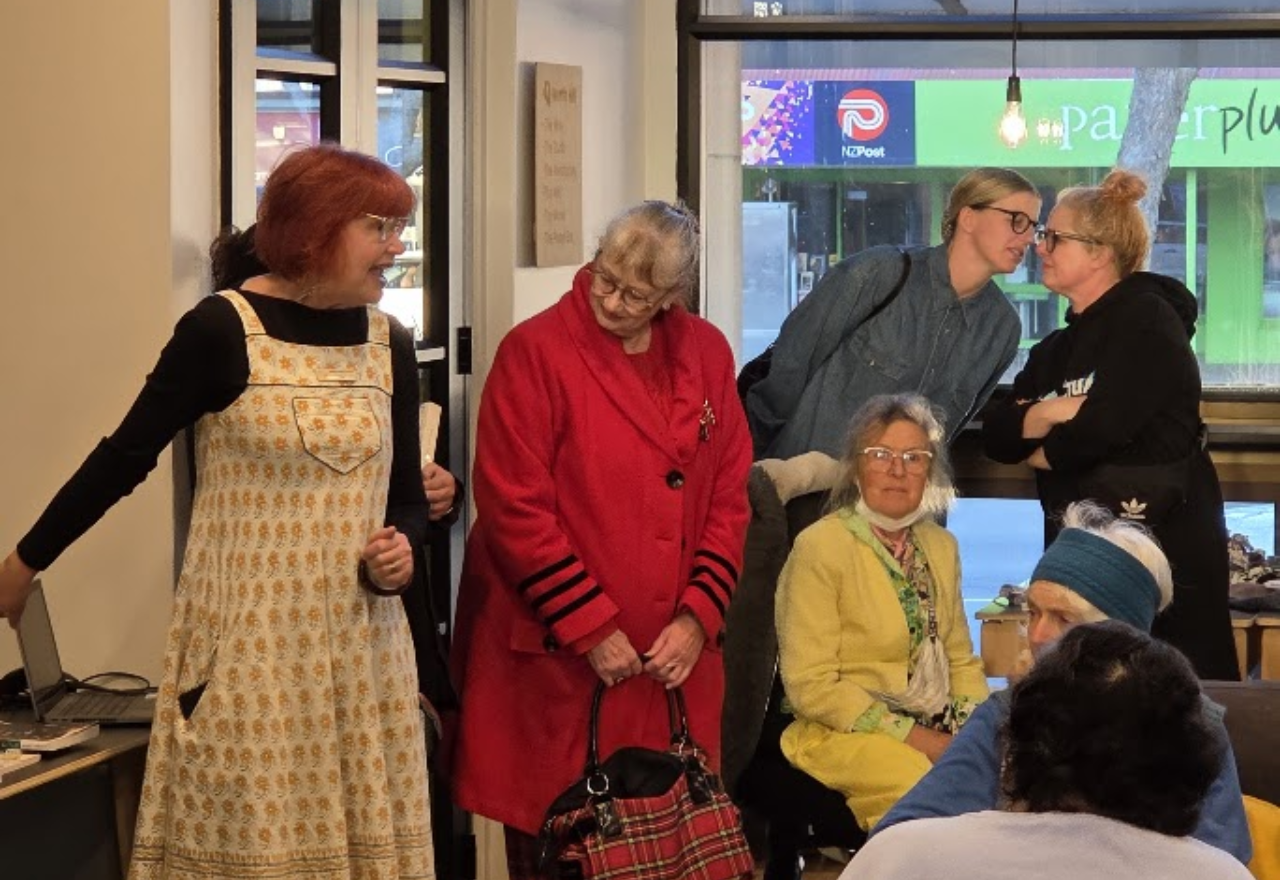
Lisa Potaka Ross talking about the many books on sustainable practices available from Waitaki District Libraries. Photo: Alex Regtien.
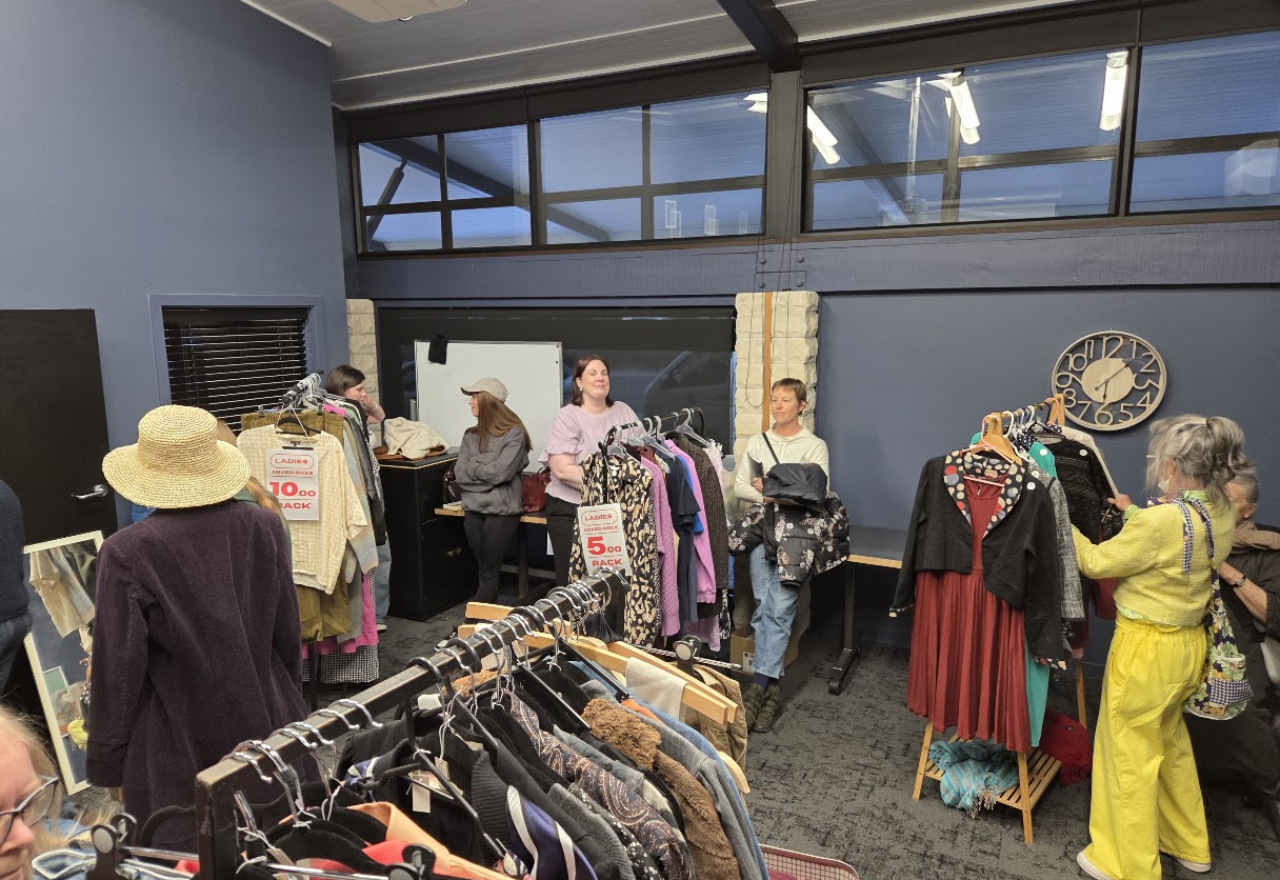
Second-hand and vintage sales. Photo: Alex Regtien.
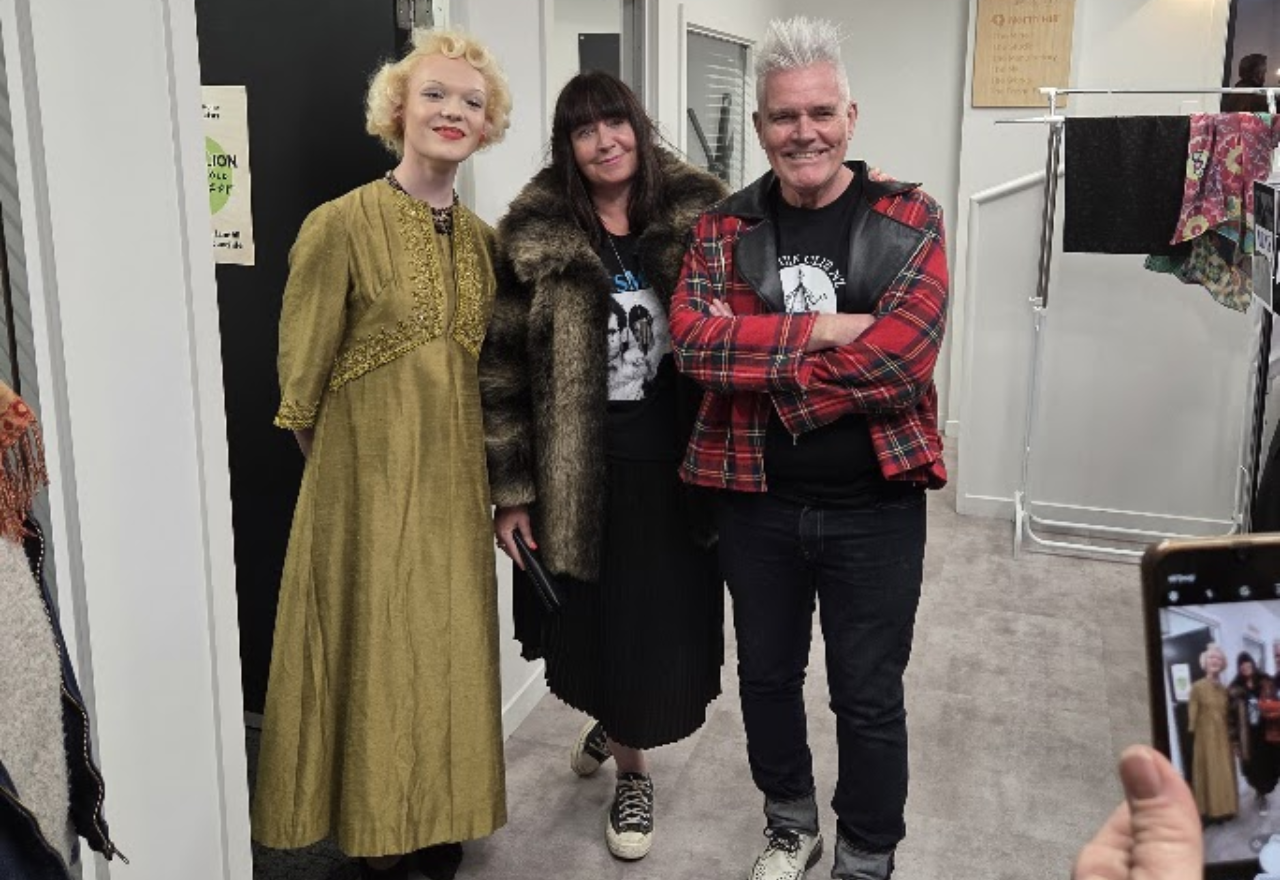
Papped looking fabulous. Photo: Alex Regtien.
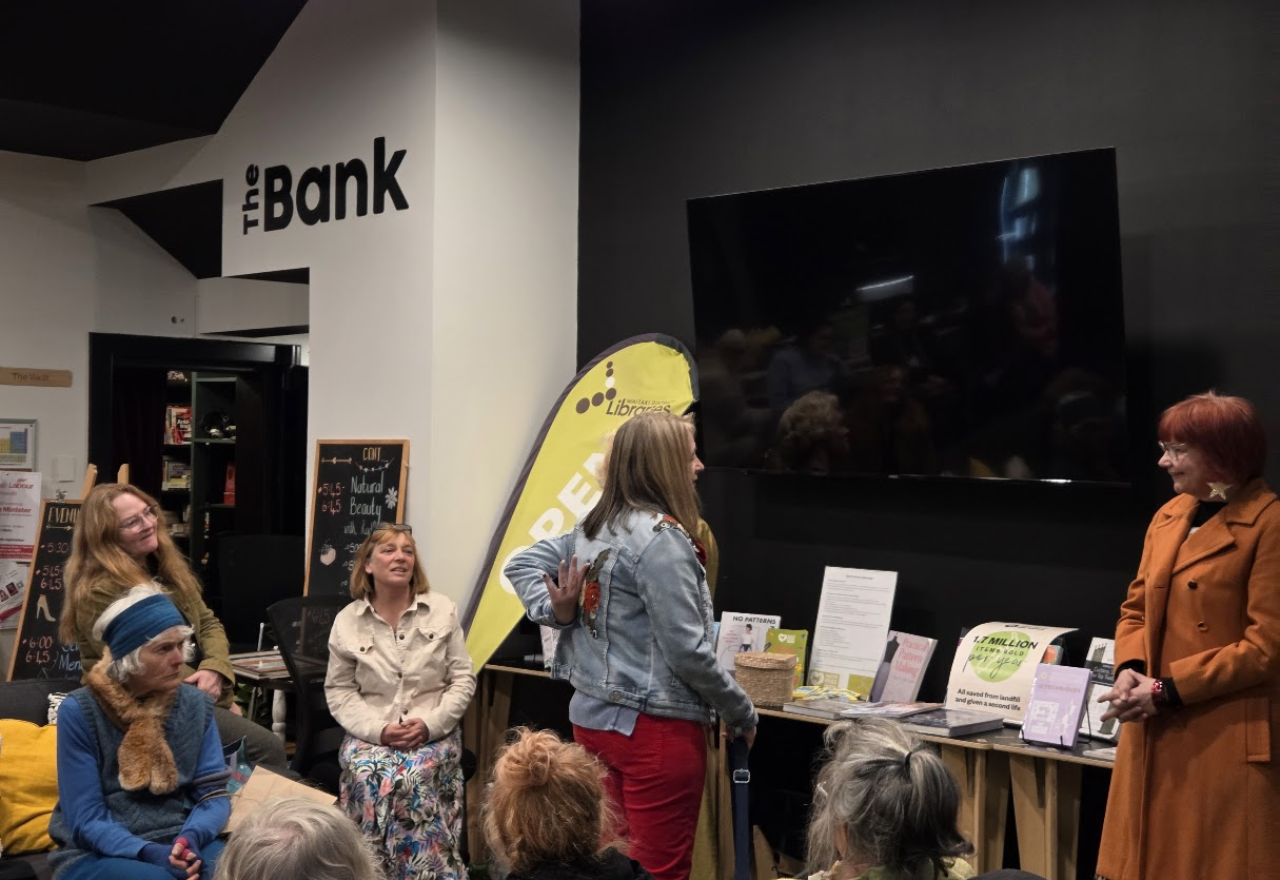
Repurposed with purpose - slow fashion stories. Photo: Alex Regtien.
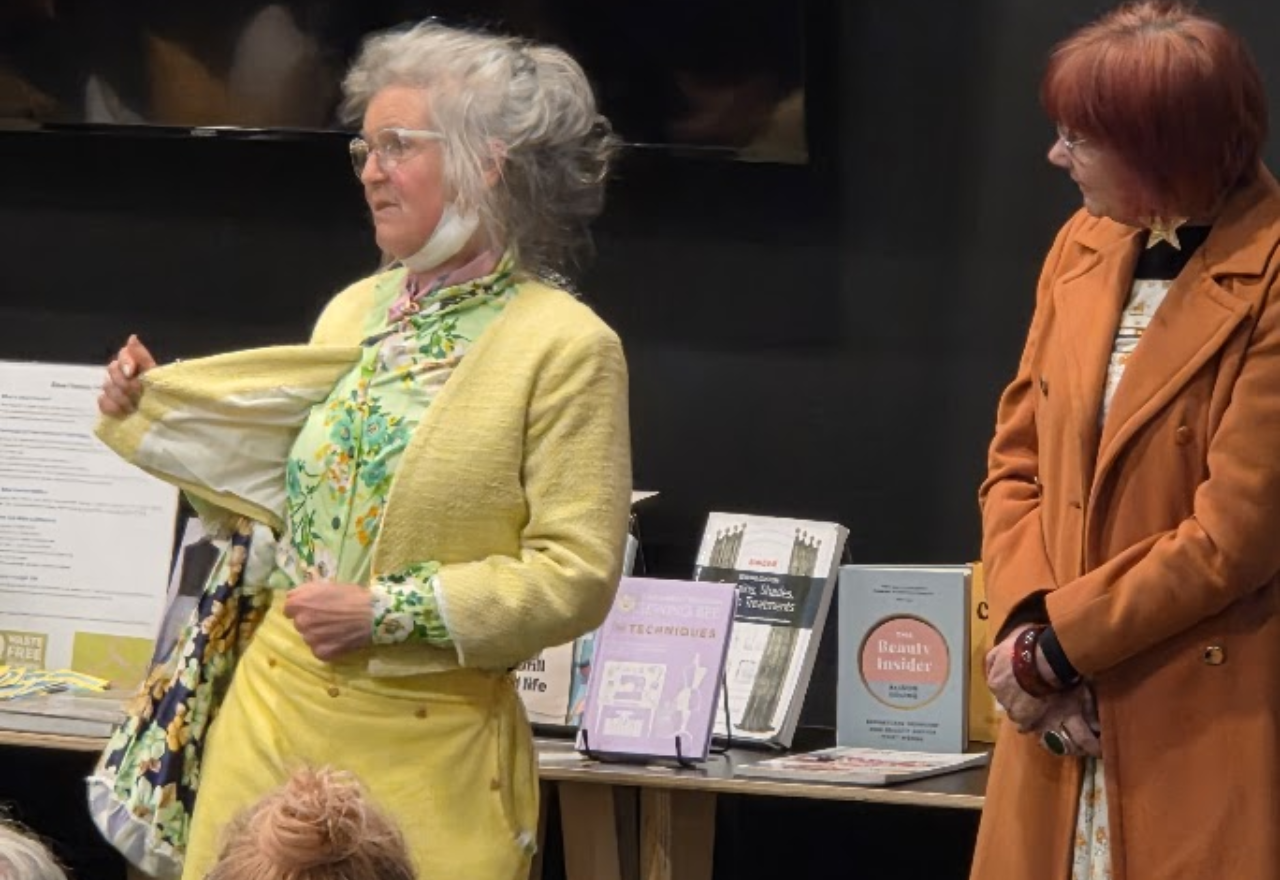
Found, made, saved - slow fashion stories. Photo: Alex Regtien.
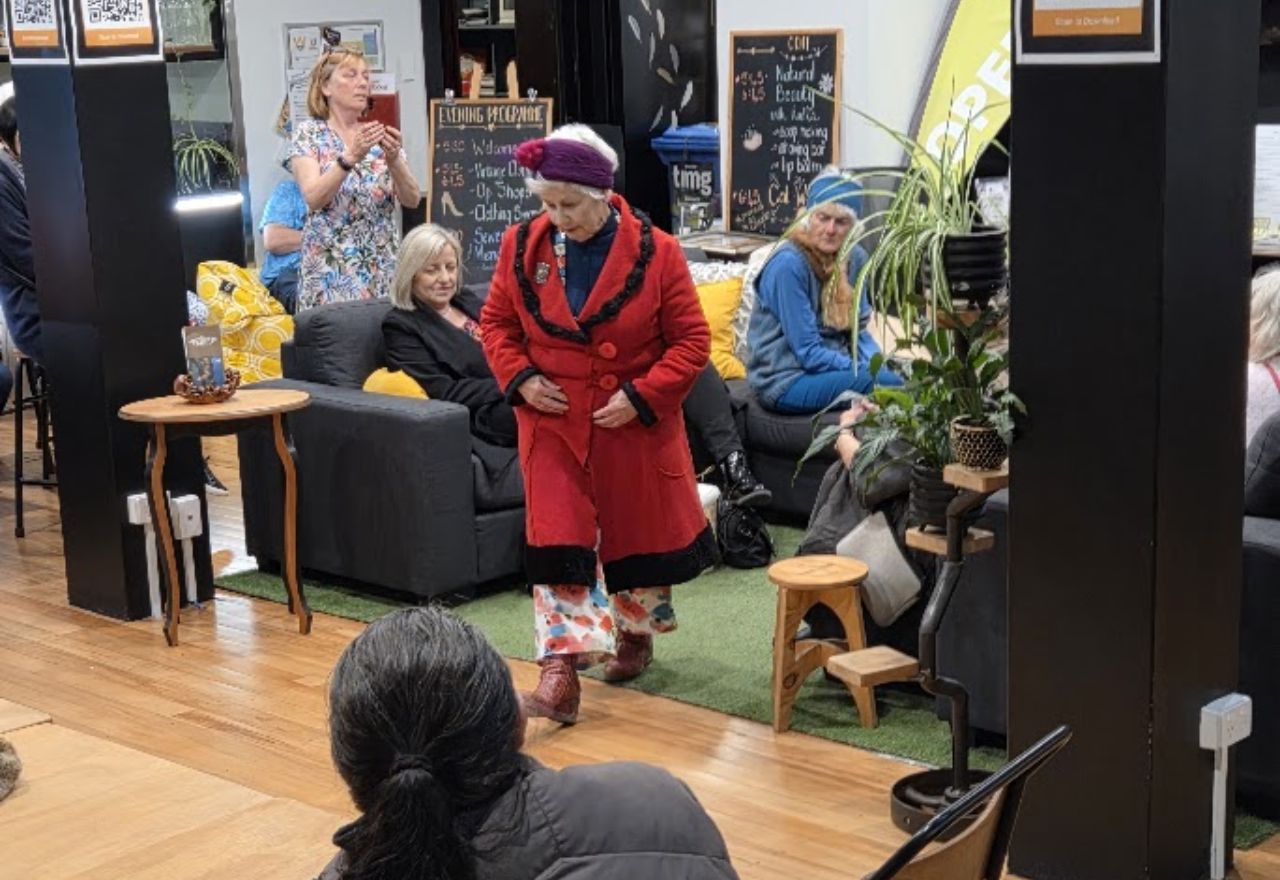
Discovered and re-imagined like a boss - slow fashion stories. Photo: Alex Regtien.
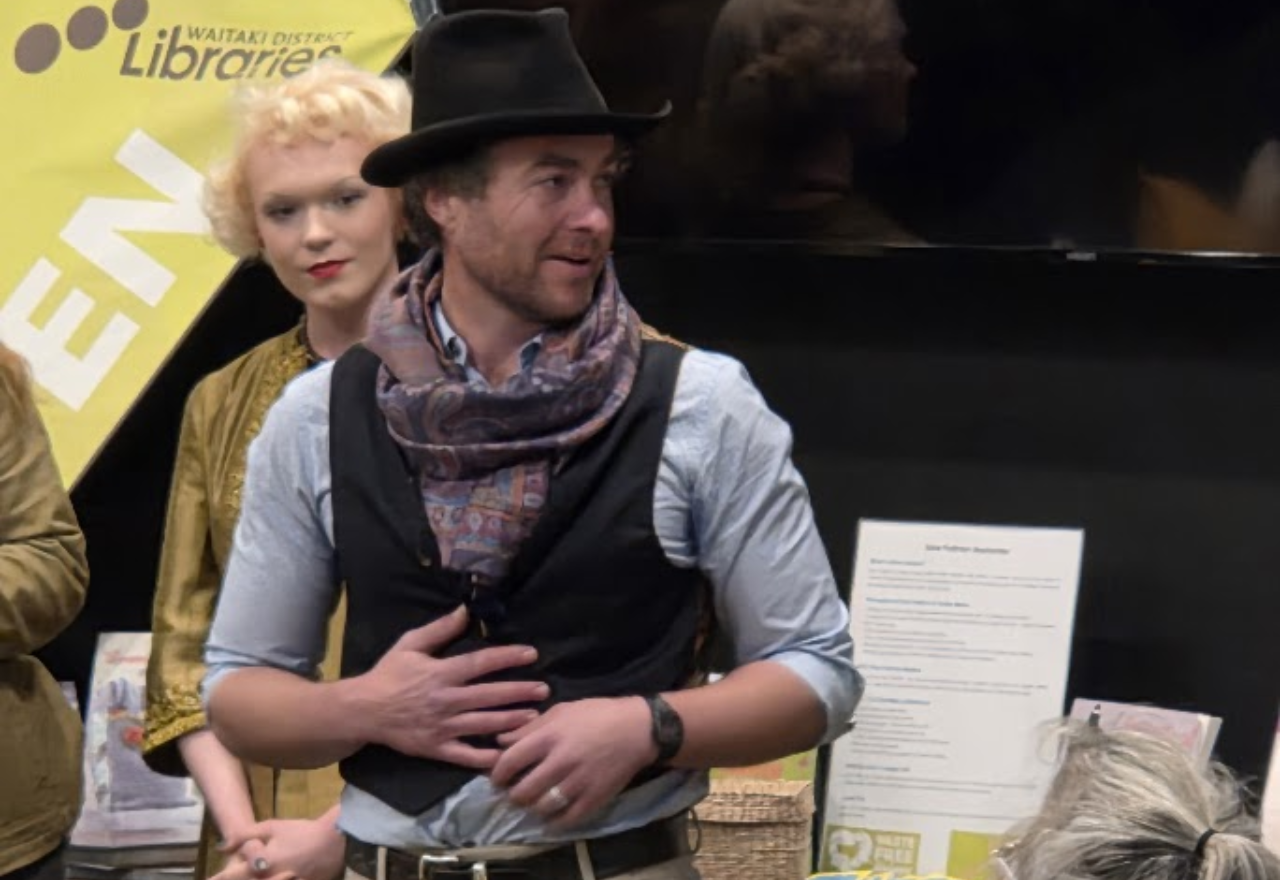
Loves found, made and journeying on - slow fashion stories. Photo: Alex Regtien.

